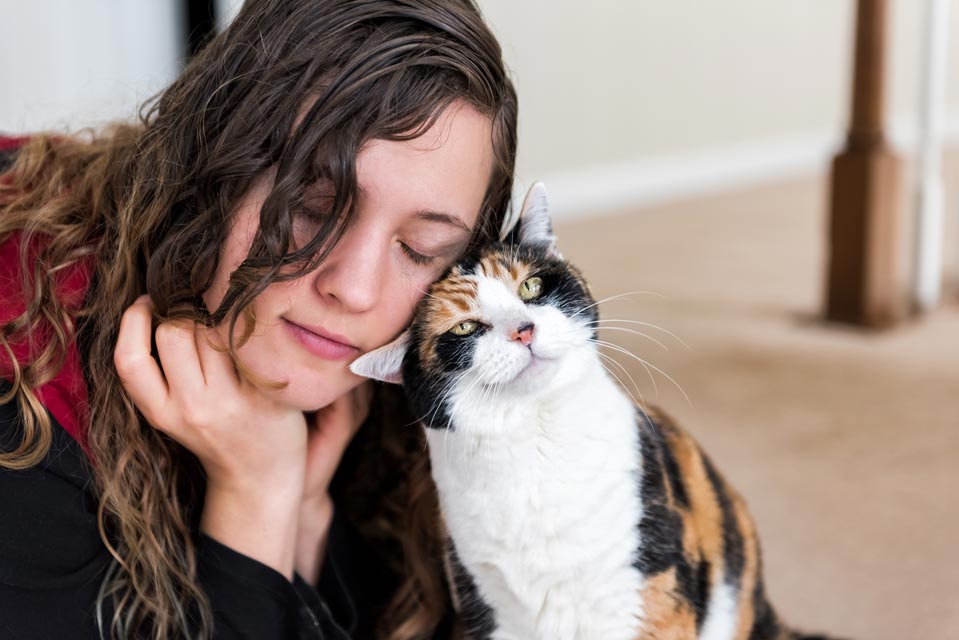Do Cats Get Concussions?

Concussions are something we hear a lot about with relation to humans. Car accidents, sporting injuries, tumbles, and things falling on our heads can all result in dangerous concussions.
Cats can actually suffer from concussions too, though it's not something we here nearly as much about.
Causes of Feline Concussions
The most common cause of concussion in cats is trauma to the head. This can be the result of many situations, but the most common of these are:
- Falling from something high, such as a tree, ledge, open window, or a tall shelf.
- Being hit by a car, also known as HBC to veterinarians.
- Trying to climb something heavy and unstable that subsequently falls on the kitty.
-
Being shaken by a dog or malicious person.
The vast majority of the sources of head trauma and concussion in cats occur outdoors. Keeping cats inside drastically reduces the risk of them ever suffering a concussion.
Signs of Concussion in Cats
Signs of head trauma and concussion in cats can be difficult for a layperson to notice. A veterinarian will do a thorough physical and neurological examination whenever a cat has been involved in a traumatic incident. The doctor may see evidence of a concussion by looking into the cat's eyes and noticing abnormal movements called nystagmus, differently sized pupils, or abnormal response of the pupils to light and dark. A veterinarian may also see bleeding in a cat's retinas which can indicate trauma.
Other signs of concussion in cats may include lethargy, wobbliness, vomiting, seizures, or unconsciousness.
Long-term Consequences of Concussion in Cats
When a cat has an injury to the head, he may suffer from primary damage to the brain that produces immediate signs and may not be reversible. However, secondary injury can also occur to the brain, usually the result of swelling or bleeding. This happens later—usually minutes to hours after the initial trauma— and produces new signs such as paralysis, changes in behavior, and even coma and death. This is why it is critical to seek evaluation and treatment for your cat if you have seen or suspect a head injury, even if your cat's symptoms don't seem to be too serious. The longer you wait, the more secondary damage may be done to the brain tissue.
Treatment of Feline Concussion
Some cases of head trauma in cats can be treated with simple monitoring and pain management. Other times, the kitty might require a brain scan to determine the full extent of the problem. Some cats need extensive hospitalization for treatment with intravenous fluids, anti-inflammatory medications, pain medications, and drugs specific to neurological issues.
Many times, cats that have suffered head trauma also have other injuries that must be addressed simultaneously, so a general physical examination along with other tests such as x-rays, blood work, and possibly MRI or CT scan might be required to determine the necessary treatments.
The best thing you can do to help your cat if you are worried about a concussion is to get to the veterinarian as soon as possible. If brain swelling is suspected by the veterinarian, quick treatment with medications such as mannitol, which helps reduce that swelling, can mean the difference between life and death.
Sometimes, you might not even be aware that your cat has been injured, particularly if the trauma happened outside. It's important to observe your cat closely at all times to learn the behaviors that are normal for him so you can quickly pick out any abnormal behaviors that might indicate injury. Signs of concussion in cats can be vague and subtle, but other concurrent injuries might produce more recognizable signs to let you know a veterinary visit is required right away.
You May Also Like These Articles:
If Your Cat Does This Strange Thing, Don't Ignore It
Sound-Related Seizures in Cats
Panting in Cats: What Does It Mean?
7 Signs That Your Cat Might Have Arthritis
If Your Cat Does This Strange Thing, Don't Ignore It
Cat Scratch Fever: What It Is and How to Avoid It
Notice: Ask-a-Vet is an affiliated service for those who wish to speak with a veterinary professional about their pet's specific condition. Initially, a bot will ask questions to determine the general nature of your concern. Then, you will be transferred to a human. There is a charge for the service if you choose to connect to a veterinarian. Ask-a-Vet is not manned by the staff or owners of CatHealth.com, and the advice given should not delay or replace a visit to your veterinarian.





